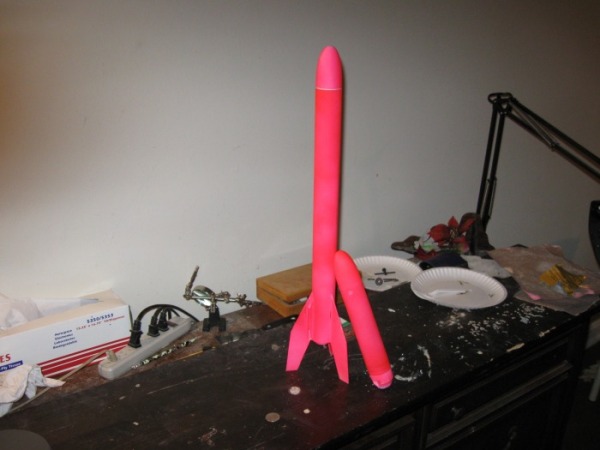Modification Big Bertha Payloader Modification
Modification - Big Bertha Payloader {Modification}
Contributed by Karl Upton
| Manufacturer: | Modification |
| Style: | Payload |
How To Convert An Estes Big Bertha Into A Payload Rocket
Purpose and Design
I need a series of payload rockets to carry experimental flight recorders/dataloggers into the Troposphere. The BBPC is something I came up with after a scratch-build payload rocket project that was enjoyable, but I don't always have the time for such a grand project. The BBPC solves that problem.
I am a big fan of the Estes Big Bertha rocket. Its BT-60 airframe can handle single or cluster motor mounts of countless design, kits/repair parts are cheap and plentiful, it has a simple design and it aint too bad on the eyes, having a "retro" profile via its fin pattern and nose cone profile. Big Berthas have always flown true for me on any motor up to an E or even an 18mm tri-cluster. My versions are always TTW fin design and are pretty durable, you can launch them all day long.
In trying t o extend the capabilities of this excellent airframe, this article focuses on converting a stock Big Bertha into a Payload Rocket. My design replaces the stock Big Bertha nose cone with a payload capsule fashioned from 2 NC-60 nose cones and 6" of BT-60 tubing. The Big Bertha Payload Capsule or BBPC, can be fashioned quickly and is the easiest way to get a payload rocket together if you already have a Big Bertha in your fleet.
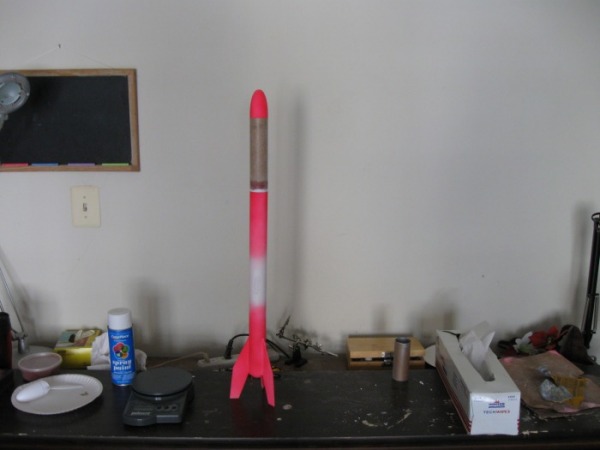
Build
The base of the BBPC is the bottom portion of a NC-60 nose cone epoxied onto a BT-60 tube. A 3/16" balsa cargo floor is put in just forward of the nose cone base. This is to protect the cargo from the recovery blast. A second NC-60 is modified for the cargo door/nosecone by removing the lower portion and epoxying two 6-32 aluminum nuts that accept 6-32 nylon bolts onto the nosecone flange. These nuts/bolts are available at any Home Depot for less than a dollar. The nylon bolts secure the cargo door/nosecone to the BT-60. Thats it! Stuff what you can into the 10+ cubic inches of cargo space and hope you have enough impulse! Lets go!
The recovery gear consists of a Kevlar cord to ¼"elastic cord that terminates at a brass #3 fishing swivel with clip, all extending from the Big Bertha airframe. This clip attaches to either the BBPC or the stock nose cone in the field depending on what I need the rocket to do.--Remain a simple bird or to carry some freight.
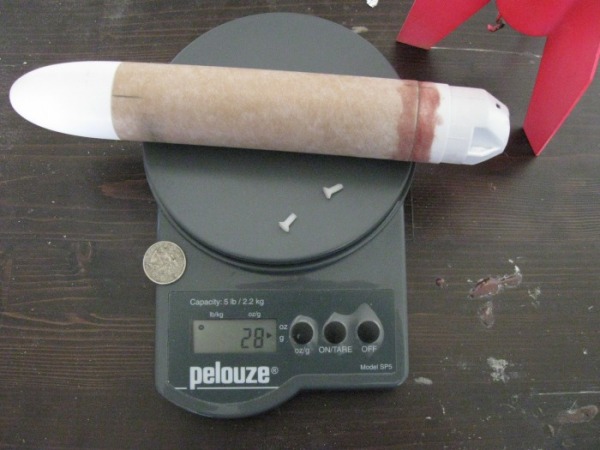
Performance
The BBPC weighs 29 grams with the paint. This, in addition to the cargo weight will drastically change the SM ratio of your stock Big Bertha, but it should only shift the CG further forward in the airframe than its Big Bertha stock configuration. The extra length added when the BBPC is in place shifts the CP forward 1 inch. The stock CP position for the Big Bertha is 24.25" back from the tip of the nosecone. The CP for my BBPC rocket is 23.25" from the tip of the nosecone.--But as long as the CG is one caliber or more forward of the CP you should have a good flier in your hands. The BBPC just decreases the CGs caliber from the CP position by an insignificant amount.--One inch, which is less than one caliber. One caliber on the Big Bertha is 1.41".
My BBPC rocket weighs 5.25 oz. ready to launch with no motor. An E9 motor weighs 2 oz. This gives you a 7.25 oz. ready-to-launch platform WITH 10 cubic inches of cargo space! Future refinements will improve these numbers. I read somewhere that Estes has produced the Big Bertha for 30 years.--It is easy to see why.
I prefer to stick with the lower power impulse black powder motors and concentrate on clusters and booster configurations. Within this low power impulse range, the BT-60, 70 and 80 airframes cant be beat. The Big Bertha seems to be the epitome for the BT-60 airframe. The BT-70 is runner up in utility, but its availability and price lag FAR behind BT-60 and 80s.
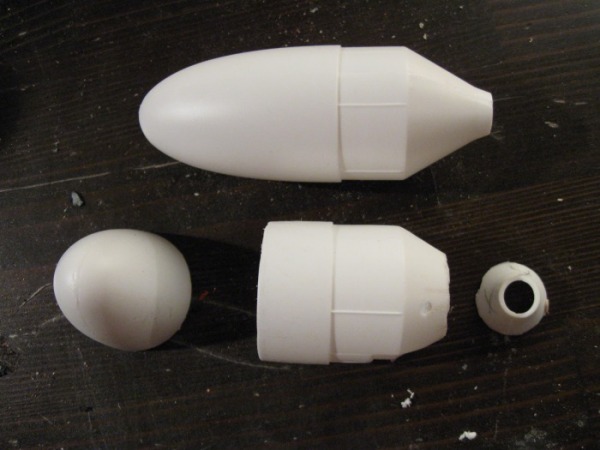
Launch Day 1
The BBPC has proven, as much as it could in one day, that it will soldier on as its sibling the Big Bertha. On 4/11/09, a clear day with wind speeds up to 20 MPH, this Big Bertha airframe conducted 8 flights in its standard and BBPC configurations flawlessly. The ideal setup for the Big Bertha is a 15" chute. The best recovery for the BBPC with 62 grams of ballast is a 30" chute. I have made numerous successful flights with the 62 gram ballast, which is the size and weight of my GPSDL, and is what the BBPC was designed to haul. I will launch the GPSDL and collect data the week of 4/13.
I have not run any altitude calculations yet, but I estimated the highest altitude achieved that day for the BBPC was 500', flying on 24mm short motors. (C & Ds only) This was its altitude at best due to the moderate winds out that caused me to lau nch into the wind, limiting maximum altitude.--I had no choice after the Big Bertha got some AWESOME altitude on its first flight, but drifted so far away during recovery it crossed a river and took a good 45 minutes to retrieve the rocket about ¾ of a mile away! That caused me to downgrade to a 15" chute for the Big Bertha and a 30" chute for the BBPC and they work flawlessly with this recovery gear.
The days launch helped me to decide that I will build a few more BBPCs; an 18mm tri-cluster and a standard 24mm that takes C, D and E motors. That might not sound too exciting, but I also plan on adding tri-boosters to each airframe. I have planned a booster mount that is "standardized" so I can choose between 13mm, 18mm or 24mm boosters to add the host rocket.--But that is all a dream at this point.
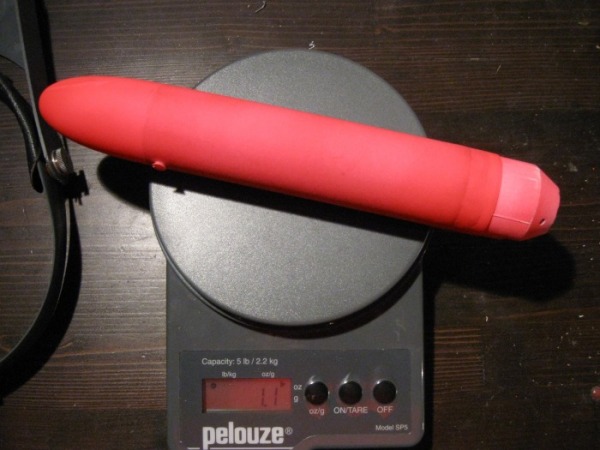
The swept behind-the-airframe fin configuration on the Big Bertha is designed to keep the CP as far rearward as possible.--An added feature is that the long, angled and squat fin area is quite durable for rough landings. I plan on trying an upscaled Big Bertha fin design on a BT-80 airframe. The logic is that the closer you keep the fins to the airframe the stronger they are. That means I can spend less time fixing rockets and more time building embedded flight computers.
My last observation is that the weight of recovery gear that runs over a 30" chute size is prohibitive for motors under size F.--You can make it work with clusters/boosters, but then again they are just a "poor mans F" impulse rocket. My other payload rocket, the TL-96 needs recovery gear of at least 36" for safe recovery of electronics. The BBPC recovers electronics just fine on 30" recovery gear. So once again, the Big Bertha airframe comes out on top! An 18mm tri-cluster variation would be very cost effective to launch also.
I will update this article after a data collecting flight or two in the weeks to come. I should be able to contrast the data I collect between two different rockets with the addition of the BBPC to my fleet.
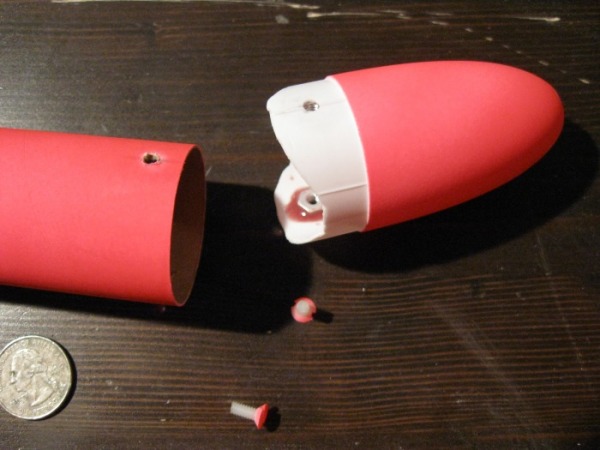
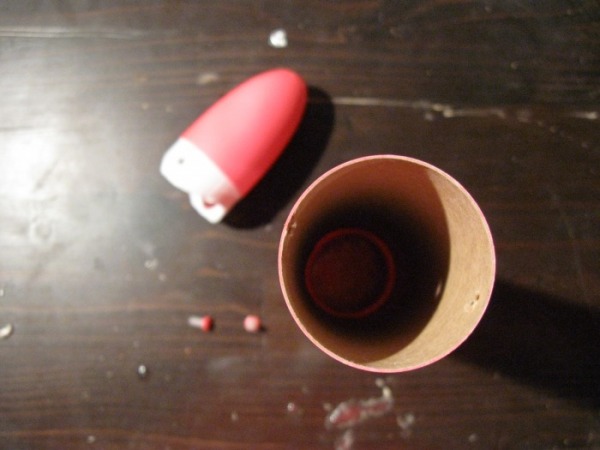
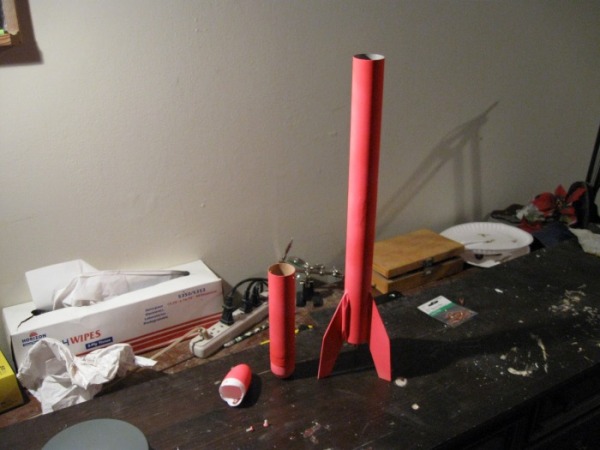
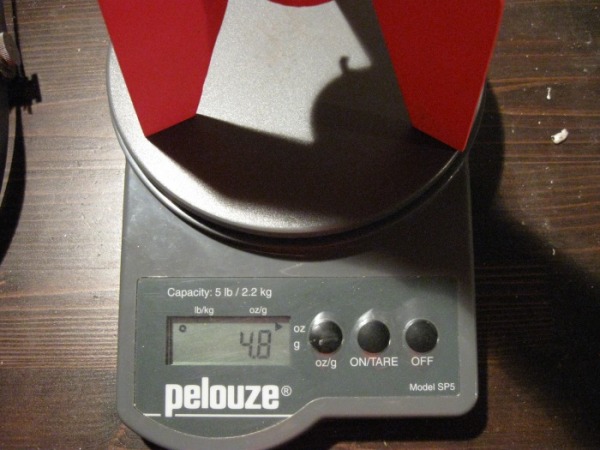
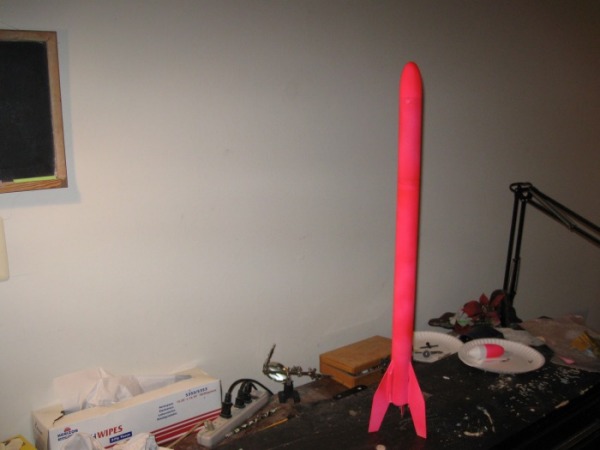
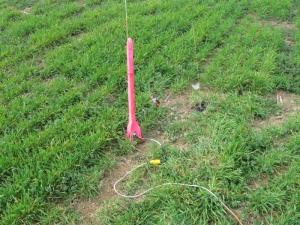
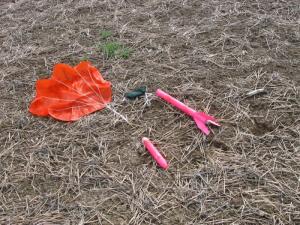
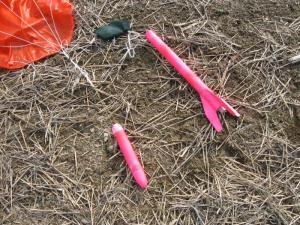
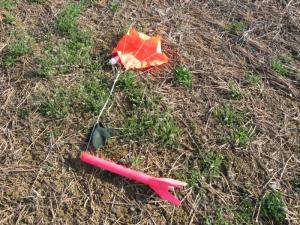
#Related Reviews
- Modification Ahtreb By Dennis McClain-Furmanski
Brief: Big Bertha modified for rear ejection. Modifications: This is a Big Bertha modified so that the motor tube extends nearly the length of the body, and acts as a piston upon ejection. Recovery is nose first, making the rocket appear to be coming in upside down. I call it Ahtreb, which is ...
- Modification Beg Bertha By Darren Longhorn
Beg Birtha Anyone remember Rocket Services? No? How about "Pitfield" motors? Ah, thought some of you might. Well, we don't see them around so much as in years gone by, but there are still a few around. In fact, I stumbled across a cache of them recently and thought I should ...
- Modification Super Baby Bertha By Kevin Johnson
Took a Fat Boy kit and added Big Bertha like fins to make a Super Baby Bertha. Modifications: NARHAMS held a Fat Boy theme sport launch this month, and I was looking for something different to do with my last Fat Boy kit. I had just finished repairing my Super Big Bertha when inspiration ...
- Scratch 2x Big Bertha By David Fergus
This is a scratch 2X upscale of a popular Estes kit. It features a 3 inch diameter body and PML components (except the nose cone, which was turned on a lathe out of solid pine). It weighs 3.5 pounds and is 45 inches tall. A 36" long, 3" diameter quantum body tube was ordered with fin slots ...
- Scratch Big Bad Bertha By Bob Fortune
Big Bad Bertha Premise: Find out how bad Bertha can actually be. Fun Facts Just because your jaws are wired shut doesn't mean milkshakes aren't part of the food pyramid. That's not a stool she's sitting on. Starting point: Estes Big Bertha ...
Related Products
Sponsored Ads
 |
 |
